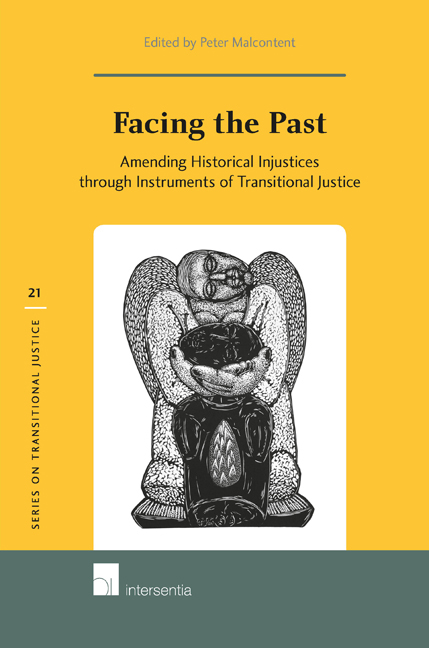Book contents
- Frontmatter
- Acknowledgements
- Contents
- PART I TRANSITIONAL JUSTICE. WHAT'S IN THE NAME?
- PART II RETRIBUTIVE JUSTICE
- Introduction
- Pacting the Law within Politics. Lessons from the International Criminal Court's First Investigations
- National and Hybrid Tribunals. Benefits and Challenges
- Beyond the Courtroom. The Objectives and Experiences of International Justice at the Grassroots
- From Gacaca to Mato Oput. Pragmatism and Principles in Employing Traditional Dispute Resolution Mechanisms
- Dealing with Organisations and Corporations
- PART III RESTORATIVE JUSTICE
- PART IV PENDING CASES
- Author Information
National and Hybrid Tribunals. Benefits and Challenges
from PART II - RETRIBUTIVE JUSTICE
Published online by Cambridge University Press: 15 December 2017
- Frontmatter
- Acknowledgements
- Contents
- PART I TRANSITIONAL JUSTICE. WHAT'S IN THE NAME?
- PART II RETRIBUTIVE JUSTICE
- Introduction
- Pacting the Law within Politics. Lessons from the International Criminal Court's First Investigations
- National and Hybrid Tribunals. Benefits and Challenges
- Beyond the Courtroom. The Objectives and Experiences of International Justice at the Grassroots
- From Gacaca to Mato Oput. Pragmatism and Principles in Employing Traditional Dispute Resolution Mechanisms
- Dealing with Organisations and Corporations
- PART III RESTORATIVE JUSTICE
- PART IV PENDING CASES
- Author Information
Summary
INTRODUCTION
The origins of modern international criminal law date back to the military tribunals established after World War II. Although the Nuremberg and Tokyo trials have been largely criticised for the fact that they operated without precedent, the trials’ legacies have endured and their jurisprudence aided in the further development of international criminal law norms. To be sure, the lasting legacy of the Nuremberg and Tokyo trials is the assertion that individuals are subjects of international law and can be held criminally responsible for perpetrating war crimes and crimes against humanity. However, following the conclusion of the trials, there is a large gap in time between the Nuremberg and Tokyo military tribunals of the 1940s and the civilian ad hoc tribunals of the 1990s. The creation of these tribunals, under the auspices of the UN Security Council, was in response to atrocities that took place in the Balkans and Rwanda respectively. Their emergence ushered in a new era in international law and international criminal justice, whereby once again the international community has sought to hold individuals accountable for the violation of international crimes.
The trials at the International Criminal Tribunals for the former Yugoslavia and Rwanda (ICTY and ICTR) have not only held individuals accountable for international crimes, which arguably has helped to decrease tensions between opposing groups by steering clear of collective blaming, but have helped to build an historical record, thereby combating denialism and promoting truth. Furthermore, the jurisprudence from the international tribunals has helped to shape the future interpretation of violations of international criminal law. Some commentators argue that by virtue of their externality, international tribunals provide for an objective distance between those judging and those being judged, which allows for a normative message to be expressed.
Following the establishment of the ICTY and ICTR in July of 1998 states drafted the Rome Statute, establishing the International Criminal Court (ICC). The Statute entered into force on 1 July 2002 and today one hundred and twenty three countries have ratified the treaty. The ICC, which prosecutes individuals alleged to have committed the most serious crimes of concern to the international community, is the only international criminal court that is permanent and whose jurisdiction is potentially universal.
- Type
- Chapter
- Information
- Facing the PastAmending Historical Injustices Through Instruments of Transitional Justice, pp. 115 - 138Publisher: IntersentiaPrint publication year: 2016



